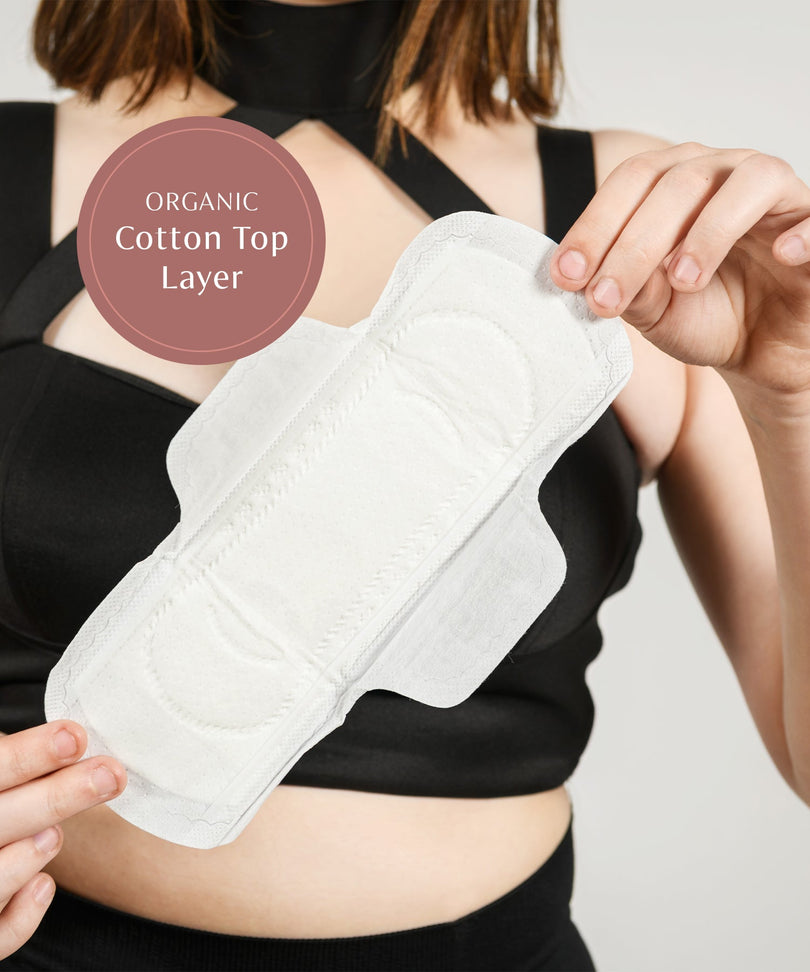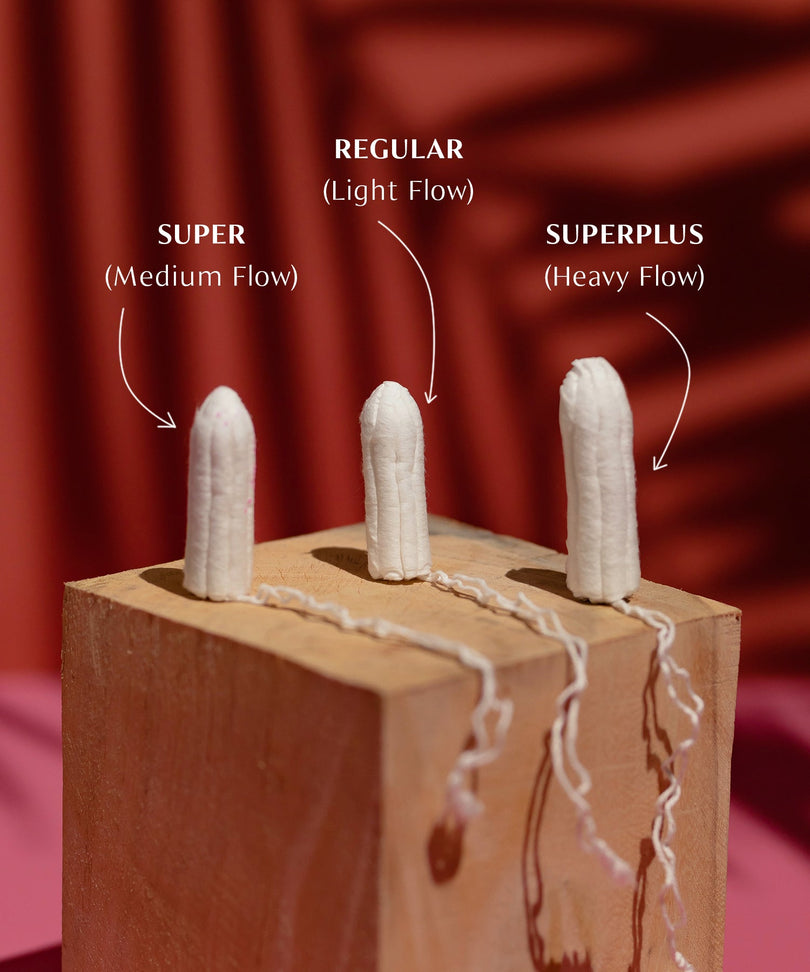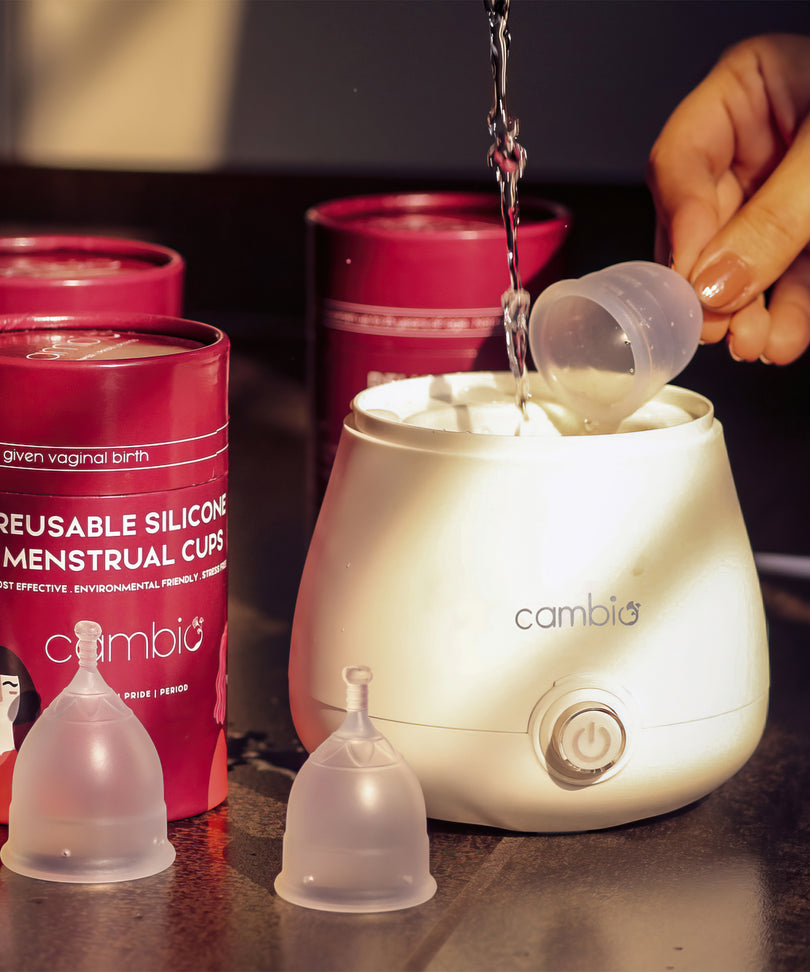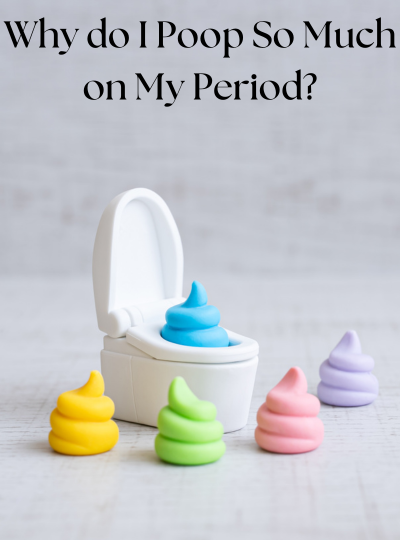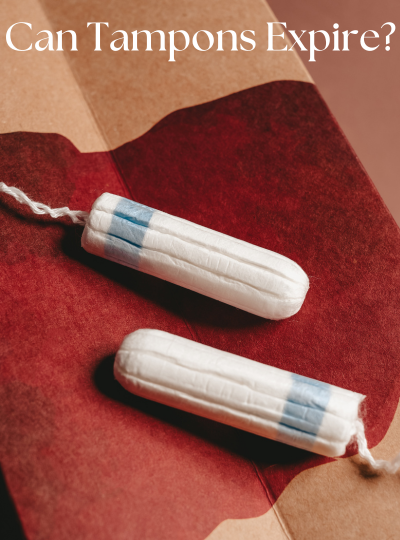What are UTIs? How does it Affect my Body?
Urinary tract infections (UTIs) are infections that affect the urinary system, which includes the kidneys, ureters, bladder, and urethra. UTIs can occur in any part of the urinary system but are most common in the bladder and urethra.
The primary symptom of a UTI is discomfort or pain during urination, which can range from mild to severe. Other symptoms of a UTI may include a frequent need to urinate, urinary urgency, and a feeling of incomplete bladder emptying. Some people may also experience lower back pain, fever, chills, nausea, or vomiting.
Also read - Can sanitary pads cause UTIs?
Is there a Relationship between hormonal changes and susceptibility to UTIs?
Yes, there is a definite relationship between hormonal changes and susceptibility to UTIs, particularly in women. Here's how:
Estrogen's Role:
Estrogen promotes the growth of beneficial bacteria in the vagina and urinary tract, acting as a natural barrier against harmful bacteria like E. coli, which can cause UTIs.
Hormonal fluctuations throughout the menstrual cycle affect estrogen levels.
Decreased estrogen levels:
During perimenopause and menopause, when estrogen levels naturally decline, women become more susceptible to UTIs. This is because the protective barrier of good bacteria weakens, making it easier for harmful bacteria to colonize the urinary tract.
After childbirth, estrogen levels drop significantly, increasing the risk of UTIs in the weeks following delivery.
During menstruation, a slight dip in estrogen can also slightly increase the risk, although the effect is less pronounced.
Other Hormonal Influences:
Pregnancy: Hormone changes during pregnancy can alter the urinary tract and bladder function, making women more vulnerable to UTIs, especially in the second and third trimesters.
Birth control pills: Some birth control pills containing a combination of estrogen and progestin may reduce the risk of UTIs by maintaining higher estrogen levels. Others with only progestin might not offer the same protection.
Important to Note:
While hormonal changes play a significant role, other factors contribute to UTIs, such as frequent sexual activity, urinary tract abnormalities, and poor hygiene.
Also read - Tips to maintain good menstrual hygiene
How can I maintain Good Hygiene to prevent UTI during Periods?
Here are some tips for maintaining urinary tract health during menstruation:
- Drink plenty of water: Drinking enough water can help flush bacteria from the urinary tract, reduce infection, and prevent dehydration. Aim to drink at least 2-3 litres of water per day during your menstruation cycle.
- Change period products regularly: Change sanitary pads and tampons regularly, about every 4-6 hours, to avoid excess moisture that can lead to infection. Pads and tampons should also be changed after exercise or swimming to help prevent moisture buildup.
- Consider using a menstrual cup: Menstrual cups can provide an alternative to pads and tampons and may reduce the risk of infection. However, proper hygiene must be maintained to prevent bacteria growth in the cup.
- Avoid scented products: Avoid using scented pads, tampons, and douche products as they may irritate the urinary tract.
- Practice safe hygiene: Practice good reproductive hygiene habits such as washing or wiping with water after sexual activity, using a condom, and urinating after sex to help prevent UTIs.
- Seek medical help if symptoms occur: If you experience symptoms of a UTI, such as pain or burning during urination, frequent urination, or fever, seek medical attention as soon as possible. Treatment for UTIs typically includes antibiotics to kill the bacteria causing the infection.
Is there a connection between Antibiotics and Hormonal Health?
Antibiotics are important for treating bacterial illnesses, but their use can also affect your hormonal balance. This is because antibiotics not only kill harmful bacteria but also impact the healthy microorganisms in your gut. The microbiome, which consists of bacteria, fungi, and other microorganisms, plays an important role in hormone production and regulation in your body. When antibiotics disrupt the balance of these microorganisms, it can disrupt your hormonal balance and lead to hormonal issues.
Therefore, it's important to limit the use of antibiotics to cases where it's medically necessary and to follow your doctor's instructions for taking them.
Also read - Clitoral Erection
Can Stress and Illness Affect Periods?
Stress and illness can both have an impact on menstrual cycles.
Stress can affect menstrual cycles in several ways. One way is through the release of cortisol, a stress hormone that can disrupt the production of reproductive hormones. This can lead to menstrual irregularities, such as late or missed periods, heavier or lighter flow, and changes in hormone levels. Additionally, stress can also affect the timing of ovulation, which can affect the likelihood of pregnancy.
Illness can also have an impact on menstrual cycles. For example, illnesses that cause fever, such as influenza or even COVID-19, can affect the body's natural hormonal balance and lead to changes in menstrual cycles. Conversely, certain medical treatments, such as chemotherapy, can also disrupt menstrual cycles by affecting hormone production and causing amenorrhea, or the absence of a period.
Also read - Is Watery Period Blood a Sign of Pregnancy?
What are some Hygiene Practices to Reduce the risk of UTIs?
- Clean your vulva every day: Washing the folds and the folds of your vulva with warm water and unscented soap, especially after urination and at the end of the day, can help remove harmful bacteria that may cause UTIs.
- Change your underwear regularly: Wear cotton underwear, as it allows your skin to breathe and reduces the risk of moisture buildup that can lead to the growth of bacteria. Change your underwear daily to reduce the risk of infection.
- Avoid tight/synthetic clothing: Tight-fitting clothing, like swimsuits, can increase skin-to-skin contact and increase the risk of infection. Avoid tight-fitting clothing and opt for loose-fitting and breathable clothing, especially during hot and humid weather or during exercise.
- Wipe front to back: Always wipe front to back when cleaning after urinating. This can help prevent the spread of harmful bacteria from the anal area to the genital area, which can lead to UTIs. You can also wash your private parts using a bidet or water.
- Avoid douching: Douching can disrupt the natural balance of microbes in the vagina, which can increase the risk of infection. Discuss any concerns with your healthcare provider and avoid douching unless directed by them.
Also read - Why do I poop so much on my period?
What are some Lifestyle Changes to Prevent UTIs from occurring?
Drink plenty of water: Drinking plenty of water can help flush out harmful bacteria and increase the flow of urine, which can reduce the risk of infection. Aim to drink 8 glasses of water daily or more to stay hydrated.
Stay hydrated by consuming fluids: Not just water, but other fluids that help to flush out the urinary tract and keep the body hydrated. Consume drinks like juices, smoothies, and herbal teas that are high in antioxidants and vitamins, such as cranberry juice, grapefruit juice, and green tea, to help prevent UTIs. Additionally, staying hydrated by drinking enough water throughout the day is important for overall health and well-being.
Urinate after intercourse: Urinating after intercourse can help flush out harmful bacteria and reduce the risk of UTIs.
Avoid holding your urine for too long: If you have a history of UTIs, it may be helpful to avoid holding your urine for too long. Aim to urinate every 3-4 hours or when you first feel the urge, rather than waiting until you can't hold it anymore.
Also read - Can you pee in your pads?
Dietary considerations for urinary tract health
Urinary tract infections can lead to inflammation and swelling in the urinary system, which can disrupt hormonal regulation and potentially delay menstrual periods. Although the exact mechanism through which UTIs affect menstrual cycles is not fully understood, it is important to prioritize self-care and be mindful of the possible impact of UTIs on your overall health.
If you are experiencing symptoms of a UTI, it is important to see a healthcare provider for proper diagnosis and treatment. By practicing good hygiene, staying hydrated, and seeking medical attention when necessary, you can help reduce the risk of UTIs and potentially delay your period.
Read more

